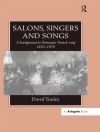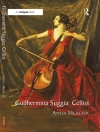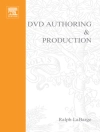Kitty Clive (1711-1785) was a top London stage star. She dominated spoken as well as musical comedy. From the 1740s onwards, her reputation suffered a sharp decline. For anyone curious about star production in eighteenth-century Britain, her story is not to be missed.
Kitty Clive (1711-1785) was a top London stage star. Singing powered her ascent and, for twenty years, was foundational to her success as she came to dominate spoken as well as musical comedy. Her protean powers transfixed audiences, whether in low-style productions or in works by masters like Purcell, Shakespeare, and Dryden. Celebrities such as Handel and Henry Fielding wrote vehicles for her.
Clive’s career was unique. Despite a sometimes awkward biography – her father was a disgraced Irish Catholic; she defied managers; her marriage was almost certainly a social ruse and her ‘husband’ a homosexual – her musical voice helped her to become the champion of British song, of patriotism, and of propriety. Yet in the 1740s, critical opinion turned against Clive and the financial power she wielded. Salvaging her career with David Garrick’s help, Clive gutted her legacy. She quit serious song and took to caricaturing herself on stage, winning back audiences by disparaging her earlier achievements. Altering works mid-performance, creating and re-shaping stage genres, and leveraging press coverage while seeming not to, she was above all a shrewd manager and a fascinating stage artist.
Clive’s career reveals to us gorgeous song otherwise lost and perspectives previously unknown. For music historians, musicologists, theatre scholars, and anyone curious about performance history and star production in eighteenth-century Britain, her story is not to be missed.
BERTA JONCUS is Senior Lecturer in Music at Goldsmiths, University of London.
Tabla de materias
The Siren Song: Kitty Clive in the Playhouse
‘The Lovely Virgin tun’d her Voice’: Henry Carey and the Production of a Native Songster
‘Charm’d with the sprightly Innocence of Nell’: The Metamorphosis of Miss Raftor
‘HINT writes and RAFTOR acts in Drury-lane’: Clive, Fielding and Theophilus Cibber
‘The pious Daughter, and the faithful Wife’: Fielding, Miller and Clive, 1733-35
‘A Likeness where none was to be found’: Contested Images of Clive, 1734-1737
The Patriot Soprano: British Worthies at Drury Lane
Handel and the Sweet Bird of Drury Lane, 1740-43
The Case of Mrs. Clive
Of Scuffles and Rivalries: The Demise of ‘Kitty Cuckoe’
From Miss Lucy to Mrs Riot: Voice and Caricature
Clive on Clive:
The Rehearsal: Or, Bays in Petticoats
Conclusion: The Fair Songster
Appendix 1: Catherine Clive’s Roles 1728-1769
Appendix 2: Line in Catherine Clive’s Repertory 1728-1769
Appendix 3:
The Case of Mrs. CLIVE (1744)
Select Bibliography












